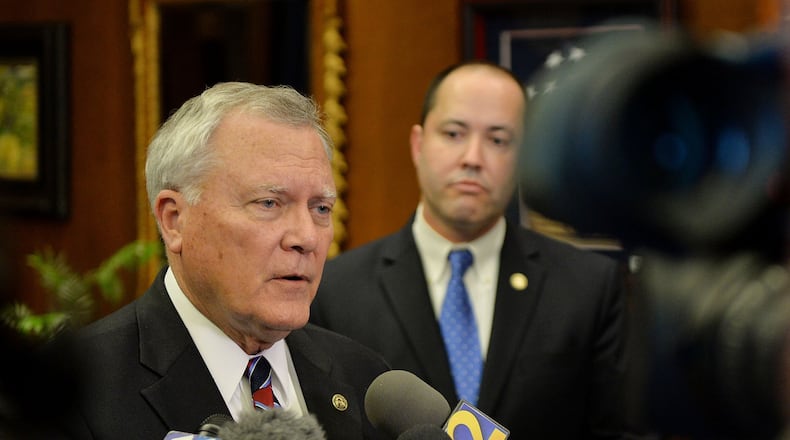Gov. Nathan Deal wants to launch a pilot program that would help prospective employees who fail drug tests get treatment for their addictions.
The details are still being hashed out, but Deal told more than 100 business leaders at a Wednesday meeting of his High Demand Career Initiative that the idea was developed after hearing a frequent complaint from employers.
"As I talk to many business people around the state, the No. 1 reason they can't hire enough workers is they can't find enough people to pass a drug test," he said. "I am working on a program that I hope will give us leverage to turn this around."
Deal said after his remarks that he and Labor Commissioner Mark Butler started discussing the proposal last year, growing out of a concern that Georgia has no way to help treat people with drug or alcohol problems until they end up in the judicial system.
The governor said his program could involve giving the Department of Behavioral Health and Developmental Disabilities more leeway to treat job applicants who fail their drug tests. Private employers could also be offered an incentive to notify state officials when their job applicants fail drug tests, he said.
Deal stressed that it's still a long ways off, and that the final plans would likely need the sign-off from the federal Department of Labor and state lawmakers.
"I think this will be one of those breakthrough opportunities that our state can pioneer, but we're in the very early stages," he said.
At Wednesday's meeting, held at Clayton State University, several executives echoed Deal's concern. Dawn Bading, Kaiser Permanente's vice president of human resources, said background checks and drug screenings of its prospective employers are a perennial challenge.
“When people know you do those checks they don’t apply and avoid them,” she said. “It’s self-selection.”
Butler said that failed drug tests are a "constant concern" from the employers he speaks with as he travels the state. The tricky part, he said, will be negotiating a way to ensure the program focuses on drug abusers who want treatment.
"If you've got someone who wants to kick the habit, we've got to find a way to help them," said Butler.
Deal said he hoped the initiative would dovetail with his criminal justice initiatives that aim to keep more low-level offenders out of prison and speed their rehabilitation. He also predicted Georgia would blaze a trail other states could follow.
"I'm not aware of any other state having done that," he said. "But it's high time somebody did."
About the Author
The Latest
Featured




